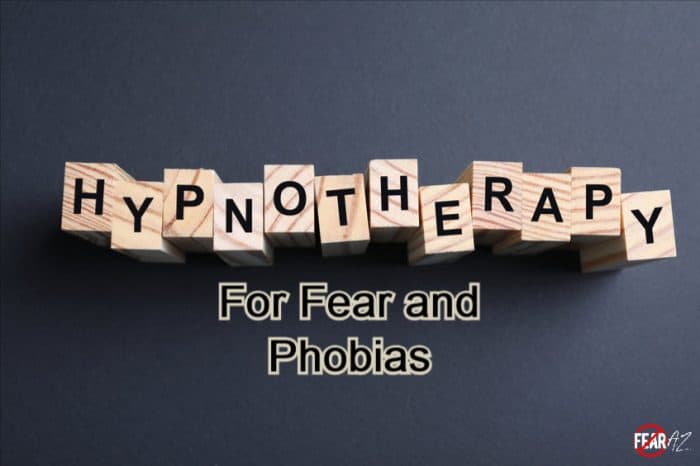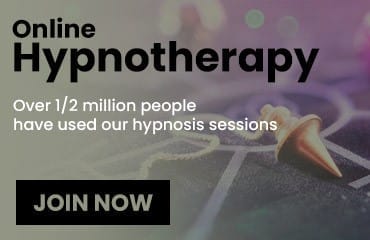Hypnotherapy: An Effective Treatment for Fears & Phobias
According to the Anxiety & Depression Association of America, anxiety is the most common mental illness in the U.S. today.
The illness affects 40 million Americans above the age of 18, but only 36.9 percent of them opt for professional treatments.
Anxiety is one of the most common symptoms and responses to fears and phobias, and it is a response to any imminent threat that you think might emerge from the source of your fears. Anyone who leaves their fears, phobias, and subsequent symptoms untreated may be at risk of facing adverse consequences.
Now, with numerous treatment options available online, we often ponder over which one to choose and which would be the most efficient in the long run.
Out of the array of treatment tools available, hypnotherapy has been used for centuries as an effective technique to get rid of fears and phobias and alleviate anxiety and other mental illnesses.
Keep reading to learn more about how hypnosis can help you cope with your fears and aversions.
What Is Hypnotherapy for Fears and Phobia?
Hypnosis is a centuries-old technique that helps in mitigating the symptoms of anxiety, depression, and other issues that result from fears and phobias.
In hypnosis, the therapist transports the patient into a very conscious and focused state of mind. They do this through the use of therapeutic words, verbal cues, self-talk, music, and other methods. These techniques help eliminate any negative thoughts and feelings that may be pent up inside the person because of their fears.
A competent therapist is usually consulted to carry out the process of hypnotherapy. The therapist asks the patient to relax and go into a deep trance that resembles a nap or light sleep. The therapist then communicates ways in which the patient can cope with their fears, confront their phobias, and ease their symptoms.
Hypnosis helps the person reach a deeper level of relaxation and concentration, which one would not necessarily achieve through simple meditation. The person is unaware of their environment and surrounding and is able to focus and emphasize their trigger points better.
Self-Hypnosis
Besides consulting a professional, one can attain the state of consciousness through self-hypnosis, too. In fact, many people enter the state of self-hypnosis many times throughout the day. Some while reading a book and others when engrossed in a movie.
This state is when you are deeply involved and absorbed in an activity, unaware of your surroundings, and highly involved and focused on the activity. It helps you have better control over yourself and your emotions. This, in turn, helps to identify your trigger points and delve into deep relaxation.
To practice self-hypnosis, you need to get into a relaxed position in a comfortable spot. Then focus your gaze on an object, breathe deeply, and visualize yourself in a peaceful place. Listen to your senses, state affirmations with your goal in mind, and then slowly let your body come back to its normal state.
Who Needs Hypnotherapy?
Hypnosis is a form of treatment that is helpful for anyone who is suffering from anxiety, panic attacks, depression, or any other mental symptom as a result of their fears.
People who go through bouts of stress, uneasiness, breathlessness, and rapid heartbeat whenever they come across their source of fear can resort to hypnosis to deal with their symptoms in a more efficient manner.
Based on the severity of the symptoms, it can either be coupled with other treatment alternatives like cognitive behavioral therapy or exposure therapy or used independently, too.
Advantages of Hypnotherapy
Hypnosis and self-hypnosis are a more advanced state of meditation. Some fall back on it for therapeutic purposes, while some utilize it as an effective method to reduce their fears and related symptoms.
Hypnosis induces calmness, so hypnosis is very effective for anyone who has been going through severe anxiety as a result of their phobia.
Besides anxiety, phobias have many symptoms that self-hypnosis can help deal with. Here is how it can help:
- Improves Your Sleep Cycle
Sleep cycles go for a toss when you suffer with a phobia. It disturbs your daily activities, routine, and schedule. Insomnia and irregular sleep patterns become a common phenomenon. You can easily access self-hypnosis and practice it to improve your quality of sleep. - Reduces Multiple Mental Illnesses
Hypnosis and self-hypnosis help overcome symptoms like stress, depression, lack of focus and concentration, and an array of mental diseases that can be toxic and aggressive. - Helps You Lose Weight
If you have been coping with your fears through poor eating habits and now wish to shed some weight, hypnosis can help you. It identifies the root cause of your poor eating habits and encourages you to eat mindfully. - Instills Self-Confidence
Living with fears and phobias can compromise how you feel about yourself. Through hypnosis, you can instill self-confidence and practice self-love. You can opt to listen to audio files of affirmations or chant a few yourself while in the state of trance. - Beneficial for Physical Improvement
Hypnosis can help you manage any case of acute or chronic pain that you have been suffering from. So besides mental health conditions, it targets physical health conditions like irritable bowel syndrome, obesity, and more.
Drawbacks of Hypnosis for Fears and Phobia
As much as it is true that hypnosis holds considerable potential to pacify your fears and help you overcome your phobias, it also has certain drawbacks that cannot be ignored.
- To master the skill of self-hypnosis, one has to practice several sessions of it. Attaining self-consciousness through hypnosis is not a one-time job. You may need hours of practice and sessions with the therapist before you can yield its actual benefits.
- Because hypnosis can induce optimum relaxation, some might often doubt it to be an effective tool of therapy.
There are a minimal number of disadvantageous associated with hypnosis, and if practiced accurately, there are many fruits of it to enjoy.
How to Make Hypnotherapy More Efficient
If you have trouble gaining benefits from hypnosis and it takes more than a few lessons for you to achieve your goals, there are a few easy ways through which you can expedite the healing process.
- Make sure to always be comfortable dressed while practicing self-hypnosis.
- Keep all your gadgets and distractions away, and choose a cozy spot for yourself where you can be left alone with your thoughts.
- Continue practicing this treatment until you start observing long-term changes in yourself.
- If you fail to achieve results from self-hypnosis, do not be afraid to seek help from a medical professional. Ensure that they offer services according to your needs and the severity of your fears and their symptoms.
Conclusion
Hypnosis has been wrongly portrayed in various media and entertainment channels as an occult practice that involves magic and bewitchment. However, contrary to its image, it has repeatedly helped show remarkable improvements in patients in terms of mental stability, anxiety, and other psychological issues.
If you are hoping to successfully change and improve your reactions to anything that triggers a negative response in you, don’t shy away from availing the tremendous benefits of hypnosis.




